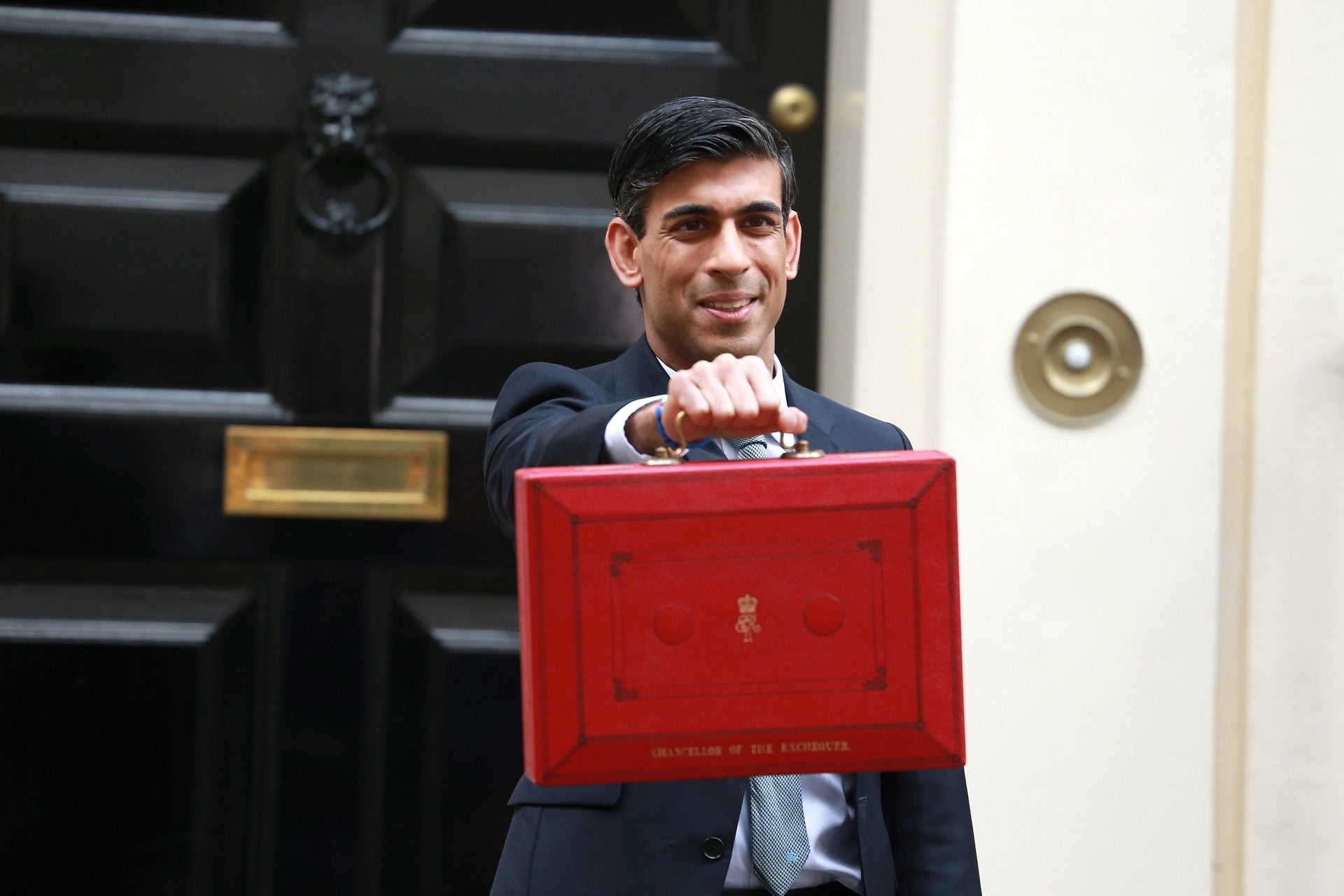
Tech-sector stakeholders have given a cautious welcome to Chancellor Rishi Sunak’s second Budget, with particular praise for its increase in the contactless payment limit to £100 – a move eagerly welcomed by many fintechs.
Other tech-friendly moves by the Chancellor included the introduction of a new fast-track visa for tech talent, consultation on listings reforms aimed at making the UK attractive to new businesses, and more cash to support startups. Sunak also unveiled initiatives likely to be less popular, including a 6% corporate tax hike from 2023.
Tech visa shake up
The tech-friendly speedy visa plans had already been widely speculated upon, but today the Chancellor revealed that they could come into effect as early as March 2022. He also announced plans to make it easier for holders of international prizes and scholarships to enter the UK.
Sunak also pledged that the government will review the innovator’s visa scheme, launch a new global business mobility visa by the spring of 2022, modernise the immigration sponsorship system, and offer practical support for small firms which may be using the visa system for the first time.
Russ Shaw, founder of Tech London Advocates and Global Tech Advocates, was one of the people who welcomed these moves.
“Brexit is in danger of restricting some of our most promising tech firms from accessing overseas talent, which makes the new fast-track visa a welcome remedy to the growing skills gap,” he said.

US Tariffs are shifting - will you react or anticipate?
Don’t let policy changes catch you off guard. Stay proactive with real-time data and expert analysis.
By GlobalDataHowever, while most market stakeholders Verdict has spoken with seemed thrilled about the ability to access skills in a post-Brexit world, some believed the Chancellor hadn’t done enough.
“[True] innovation comes through diversity of thought and background, and as a migrant myself, the Budget was missing this final piece: a reassurance to foreign talent that there is a home for them in the UK fintech community,” said Daumantas Dvilinskas, CEO and co-founder of TransferGo.
Listings reform
Before the Budget speech, HM Treasury had unveiled its review into public listings of companies, chaired by Jonathan Hill. The Hill review recommended updated rules around free float requirements and dual-class share structures to make it more attractive for innovative firms to list and grow in the UK.
Speaking in Parliament, Sunak said he welcomed the review and that he looked forward to working with the Financial Conduct Authority on the review’s recommendations.
Shaw welcomed the recommendations, saying: “Listings reform will pave the way for a bumper year of tech IPOs and spur innovation and growth in a sector that has massive potential to define this country’s future economy. As the City prepares for a year of high-profile floats, we now have a compelling set of proposals which will ensure British scaleups remain in the UK to pioneer innovation, create jobs and generate growth.”
More cash for techies
Startups need money to grow and the Chancellor hopes the Future Fund will help provide that capital. Having originally announced the fund in April 2020, he revealed in the new Budget that the government will allocate £375m to invest in sectors such as life sciences, quantum computing, and clean tech. It is looking for startups aiming to raise at least £20m.
Nevertheless, against a background of huge amounts of investment capital seeking opportunity in a low-interest-rate world, some thought this sort of money wasn’t going to have much impact.
“[With] cash-rich foreign investors looking to capitalise on a devalued pound, government investment is unlikely to deter founders from selling their businesses to entities in the US or Asia if the deal is right – even if Lord Hill’s recommendations of reform to the public listing process are implemented,” said Simon Arlington, partner at tech-focused law firm Morrison & Foerster. “While it remains to be seen how active an investor the government will be, there is a lot it could do beyond direct investment to encourage the UK’s top innovators to remain in the UK.”
Help to Grow scheme
The coronavirus crisis has pushed more businesses to respond to a new reality where they can’t meet their customers face to face.
“This had been a challenge but we want to turn it into an opportunity,” Sunak said, announcing the government plans to give 130,000 companies across the UK a digital boost via its new Help to Grow scheme.
Sherry Coutu, independent non-executive director at the London Stock Exchange, said: “We are delighted to see the chancellor commit £520m in management and digital skills training for small businesses today through the newly announced Help To Grow scheme. The gap between large and small organisations has been increasing at an alarming rate.”
Contactless payment increase
It’s well known that the pandemic has accelerated the adoption of contactless payment services due to concerns that physical cash and keying in of PIN codes could transmit the virus. The Chancellor embraced that shift by announcing the limit for contactless card and NFC device payments would be increased from £45 to £100, much to the delight of some fintech companies.
“This Budget announcement is likely to be most welcomed by small business owners who, at this incredibly difficult time, need barriers removed that could scupper important sales,” said Alexander Von Schirmeister, executive vice president for Europe at SumUp.
“Of course, it’s our job as the technology provider to make sure these payments are safe and secure for both customer and merchant – as well as working with the UK government to ensure that payment infrastructure is easily accessible and affordable for businesses of all sizes.”
Corporate taxes hiked
One initiative that Sunak admitted might be more “unpopular” was his decision to increase corporation tax from 19% to 25% in 2023 for larger businesses with profits north of £250,000. The money from the tax hike, he said, will be used to pay down the debt the government has accrued during the pandemic. The Chancellor noted that the UK would still have the lowest corporation tax rate among the G7 countries.
“First, this new higher rate won’t take effect until April 2023, well after the point when the OBR expects the economy to have recovered,” Sunak said. “And even then, because corporation tax is only charged on profits, any struggling businesses will, by definition, be unaffected.
“Second, I’m protecting small businesses with profits of £50,000 or less, by creating a small profits rate, maintained at the current rate of 19%. This means around 70% of companies – 1.4 million businesses – will be completely unaffected.”
Furthermore, big businesses will be able to cushion the blow over the next two years by wiping out their tax bills with “130% upfront capital allowances super-deduction” by investing in property, factories and equipment.
Ed Molyneux CEO and co-founder FreeAgent, was relieved to hear that smaller firms may be exempt from the tax hike.
“As SMEs have already been the worst affected by the impacts of the pandemic – and any sharp increase in tax will both damage and hinder these small businesses – it is only right that the onus falls on larger, more stable businesses who can absorb the costs,” Molyneux said.
“The decision to keep small businesses exempt from the rise in corporation tax might well be the saving grace here for many in the SME sector. Sunak’s decision will help small businesses recover – many of whom will be makers of innovative solutions. Their survival will ultimately benefit the economy.”
Read more: UK government launches Advanced Research & Invention Agency for “high-risk” research







